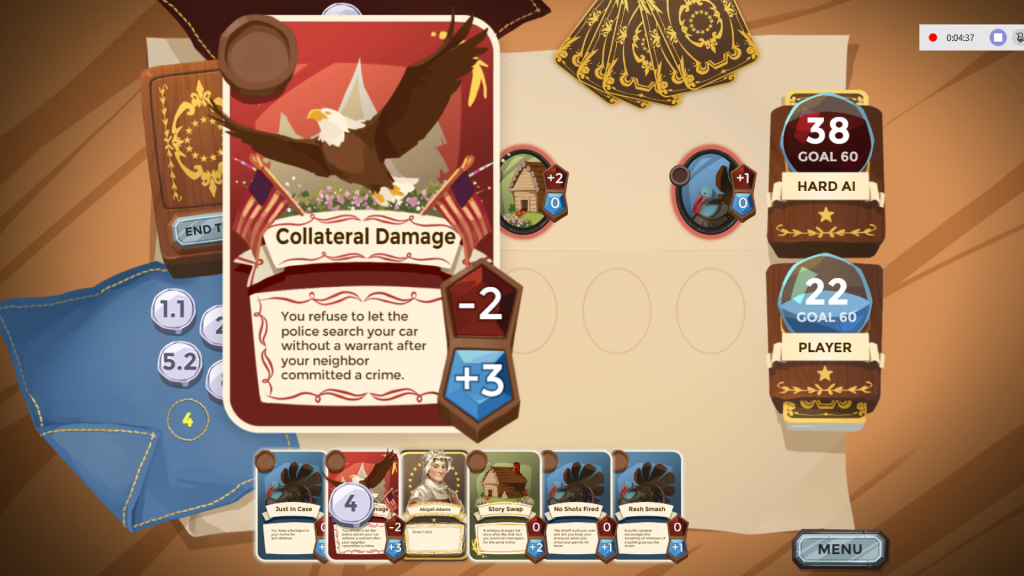In his Learning Games in 2030 blog series, CEO Dan White offers his predictions on the future of learning games, sharing insights into everything from esports EDU to cloud gaming in the classroom. In Part II of his essay, Dan discusses the increasing relevance of game-based learning as a tool for teaching 21st century skills, asserting that in the next decade, “educators will utilize learning games to teach “robot-era” skills at least as much – if not more – than core subject areas.” Fortunately for us, we don’t have to wait a decade to see examples of high-quality educational games that teach higher-order, future-facing skills – in fact, many of today’s leading learning games are already designed to help foster the “4 Cs” of 21st century learning. Here’s how:
Critical Thinking
As Civilization creator Sid Meier once famously said, “games are a series of interesting decisions” – which makes problem solving an inherent part of playing a game! As opposed to things like worksheets and quizzes which often amount to rote memorization exercises, educational games present learners with systems-based challenges that require understanding and experimentation in order to solve. Perhaps no learning games illustrate this better than our iCivics titles – games like Do I Have A Right?, Counties Work, and Executive Command put player’s critical thinking skills to the test, placing learners in the shoes of county officials, presidents, and lawyers who must gather and analyze information in order to make well-informed decisions.
Communication
Not only do educational games require players to exercise their critical thinking skills, but they also give players the opportunity to convey their learning, too. Again, this highlights the divide between traditional schoolwork and game-based learning – worksheets and quizzes evaluate whether or not a student memorized key concepts, whereas educational games offer players the opportunity to communicate their learning in a way that is personalized, and ultimately more meaningful. In Beats Empire, a computational thinking game our team created for Teachers College, Columbia University, players run their own music studio and record label, signing a lineup of artists, recording songs, and working towards domination of the charts. To grow their music studio, players must carefully examine data sets and translate this information into strategic actions that directly affect the future of their business. This exercise helps players develop their ability to synthesize and take actions based on data, a core part of the collaborative communication process across a wide range of careers.

Collaboration
It’s no coincidence that all ten of 2019’s most livestreamed video games are multiplayer titles – playing games with friends is a blast! Whether working together with a classmate or small group to complete a single-player game, or teaming up with a friend in a local or online multiplayer game, educational games offer learners the opportunity to practice working together towards shared goals. One of our favorite multiplayer learning games, Annenberg Classroom’s That’s Your Right, is an online card game that helps learners better understand the intricacies of the Bill of Rights. The game offers players a dedicated space to collaborate, solve problems together, and work towards shared goals – fostering key collaborative skills which are directly transferable to other aspects of one’s career and life.
Creativity
In addition to the above, well-crafted learning games excel at offering players the tools they need to think outside the box and unleash their creative potential. Minecraft: Education Edition is a perfect example of this, giving learners near-limitless freedom to not only make meaningful decisions through guided lessons, but also acting like a blank canvas which can be used to build some really amazing creations. Our upcoming sandbox robotics game RoboCo is another example of this paradigm at play – offering players not only the opportunity to solve a selection of engineering challenge levels, but also a dedicated “sandbox” build space which allows users to flex their creativity and assemble any bot they can imagine.
More game-based learning insights from the Filament Games blog:
School Closed? Learn at Home With These Free Learning Games!
Making Great Learning Games Pt. 1 – Defining Learning Objectives
Digital Games for Remote Instruction